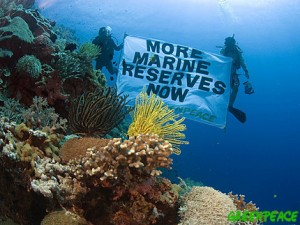Many international organizations (eg. NGOs) have been actively involved in helping to promote and maintain environmentally-sustainable behavior in the Philippines. A few of them are mentioned below:
1) International Union for the Conservation of Nature-Philippines (IUCN-Philippines) reports on species’ status and coordinates teams of experts working on species survival.
For example, the IUCN has identified the Asian Amphibian Crisis, of which it was found that 1% of total amphibians in the Philippines were critically endangered and 12% were near threatened. To help to further protect and conserve these amphibians, the IUCN has taken certain actions such as setting up National Parks covering 11% of total land area in the Philippines to offer protection to many of the critical amphibian habitats. Source: IUCN Philippines
2) World Wide Fund-Philippines (WWF-Philippines) champions conservation in areas where marine biodiversity matters most. They are situated throughout the Philippines and organize and develop several programs to address the various problems that the Philippines is experiencing currently.

Image Source: Earthtimes.org
WWF-Philippines is involved in managing marine areas and one of those is the Tubbataha Reefs Natural Marine Park. This has been deemed as one of the best managed marine protected areas in the country. WWF works closely with the Tubbataha Park Office and have developed certain programs such as diver fees, no-take zones and expansion of park boundaries to better protect the marine area.

Image Source: Verticalresponse.com
This program has been extremely successful as it has quickly shown rapidly increasing marine biomass in the protected marine area. Source: WWF-Philippines
3) The Haribon Foundation is Philippine’s pioneer environmental organization and work with people from all levels of governance to develop sustainable resource management strategies.

Image Source: Haribon.org
The Haribon Foundation has implemented several programs across various regions of the country to tackle the problem of deforestation. For instance, a community-based forest restoration and sustainable livelihood project has been implemented in several areas where the project involves teaching small communities living near the forests how to maintain and take care of the forest efficiently and how to prevent forest fires by giving them adequate training and skills development. Source: The Haribon Foundation

Image Source: Conservation.org
There are several other international NGOs and regional NGOs such as Greenpeace Southeast Asia and Sibuyanons Against Mining advocacy group in the Philippines actively involved in conserving what is left of its biodiversity. NGOs have generally been successful in their programs, more so than the governmental organizations in the Philippines and statistics show that these programs are slowing down the rate of biodiversity loss in the Philippines. However, to ensure continued and greater success, it is essential for the government to actively partake in the conservation efforts of these NGOs and to support and provide the necessary essentials for these NGOs to produce optimum results.
Click on the video below to watch Haribon Foundation’s Infomercial:


